## Introduction
In an era where sustainability and affordability are increasingly critical considerations in housing, the Lida Group has emerged as a leader in offering innovative modular prefab houses that promise both ecological responsibility and financial accessibility. These structures represent a significant leap forward in residential construction technology, combining cutting-edge design with practical functionality to meet the diverse needs of modern living.
The concept of modular prefab housing involves constructing homes in factory-controlled environments before transporting them to their final locations. This method not only ensures superior quality control but also significantly reduces construction time and waste. By leveraging advanced manufacturing techniques and materials, the Lida Group’s modular solutions offer unparalleled durability and energy efficiency, making them ideal for those seeking sustainable alternatives to traditional building methods.
Moreover, these homes are designed with affordability in mind, addressing one of the most pressing issues faced by many individuals and families today – the high cost of housing. The streamlined production process minimizes labor costs while maximizing resource utilization, resulting in lower overall expenses for buyers. Additionally, the flexibility inherent in modular designs allows for customization options that cater to various budgets and preferences without compromising on quality or performance.
This article delves into how the Lida Group is transforming the landscape of residential architecture through its commitment to creating sustainable and affordable living spaces. We will explore the key features and benefits of their modular prefab houses, highlighting examples of successful projects and discussing future trends in this exciting field. Through meticulous attention to detail and a dedication to innovation, the Lida Group continues to push boundaries in pursuit of a greener, more inclusive world.
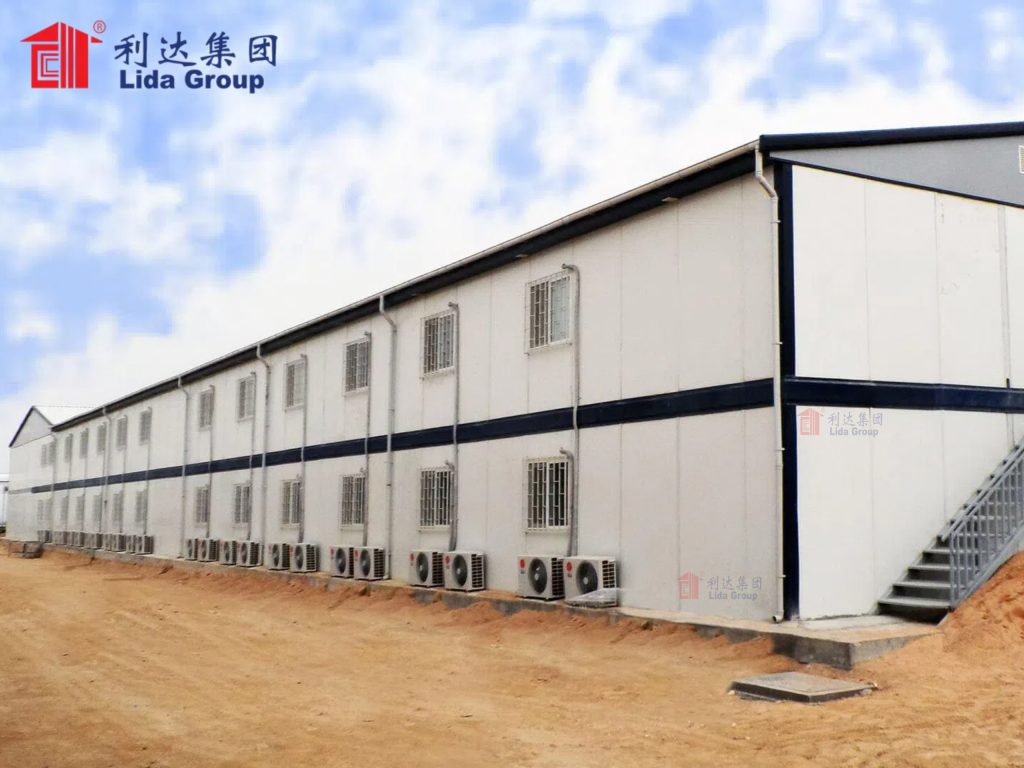
## Features of Lida Group’s Modular Prefab Houses
At the heart of the Lida Group’s success lies its unwavering focus on delivering high-quality, eco-friendly, and customizable modular prefab houses. Each home is meticulously crafted using state-of-the-art materials and technologies, ensuring they stand the test of time while minimizing environmental impact. One of the standout characteristics of these structures is their exceptional durability, achieved through rigorous testing and adherence to stringent industry standards. From robust foundations to weather-resistant exteriors, every component is engineered to withstand harsh conditions and maintain structural integrity over decades.
Energy efficiency plays a crucial role in the design philosophy behind the Lida Group’s modular prefab houses. Advanced insulation systems, double-glazed windows, and efficient heating and cooling mechanisms work together to create comfortable indoor environments while drastically reducing energy consumption. Solar panels integrated into rooftops harness renewable energy sources, further enhancing self-sufficiency and lowering utility bills for residents. Water conservation measures such as rainwater harvesting and greywater recycling systems are also incorporated, promoting responsible water usage and contributing to long-term sustainability goals.
Customization remains at the forefront of the Lida Group’s offerings, allowing clients to tailor their homes according to specific requirements and tastes. Whether it’s choosing from a wide range of architectural styles, selecting preferred finishes, or incorporating smart home technologies, there is ample opportunity for personalization without sacrificing functionality or aesthetic appeal. This flexibility extends beyond individual units to encompass entire communities, where modular designs can be adapted to fit different lot sizes and configurations, providing versatile solutions for urban planners and developers alike.
By prioritizing quality, energy efficiency, and customization, the Lida Group sets itself apart as a trailblazer in the realm of modular prefab housing. Their commitment to innovation and customer satisfaction ensures that each project not only meets but exceeds expectations, paving the way for a brighter and more sustainable future in residential construction.
## Environmental Benefits
The environmental advantages offered by the Lida Group’s modular prefab houses are manifold, reflecting a deep-seated commitment to sustainability and ecological stewardship. One of the most significant contributions lies in the reduction of construction waste. Traditional building sites often generate substantial amounts of debris due to on-site errors and inefficiencies. In contrast, the controlled environment of factory assembly lines used by the Lida Group minimizes material wastage, as components are precisely cut and fabricated to exact specifications. This precision not only conserves resources but also decreases the carbon footprint associated with raw material extraction and transportation.
Carbon footprint reduction is another key benefit derived from the Lida Group’s approach to modular construction. By streamlining the building process and utilizing lean manufacturing principles, these prefab houses require less energy during production compared to conventional methods. Additionally, the use of locally sourced materials whenever possible helps further diminish emissions related to logistics. Once constructed, the homes continue to contribute positively towards environmental preservation through their energy-efficient features. For instance, solar panels installed on rooftops generate clean electricity, offsetting reliance on fossil fuels and decreasing greenhouse gas emissions.
Furthermore, the modular nature of these homes facilitates easier upgrades and maintenance throughout their lifecycle. Components can be replaced or repaired without necessitating extensive demolition, thereby extending the lifespan of buildings and reducing the need for new constructions. This adaptability aligns perfectly with circular economy principles, promoting reuse and recycling within the built environment.
In summary, the Lida Group’s modular prefab houses exemplify a holistic approach to sustainable development. Through waste reduction, carbon footprint mitigation, and ongoing efforts towards energy conservation, these innovative dwellings set a benchmark for environmentally conscious residential solutions. As awareness around climate change grows, the importance of adopting such green practices cannot be overstated, positioning the Lida Group at the forefront of a transformative movement in housing.
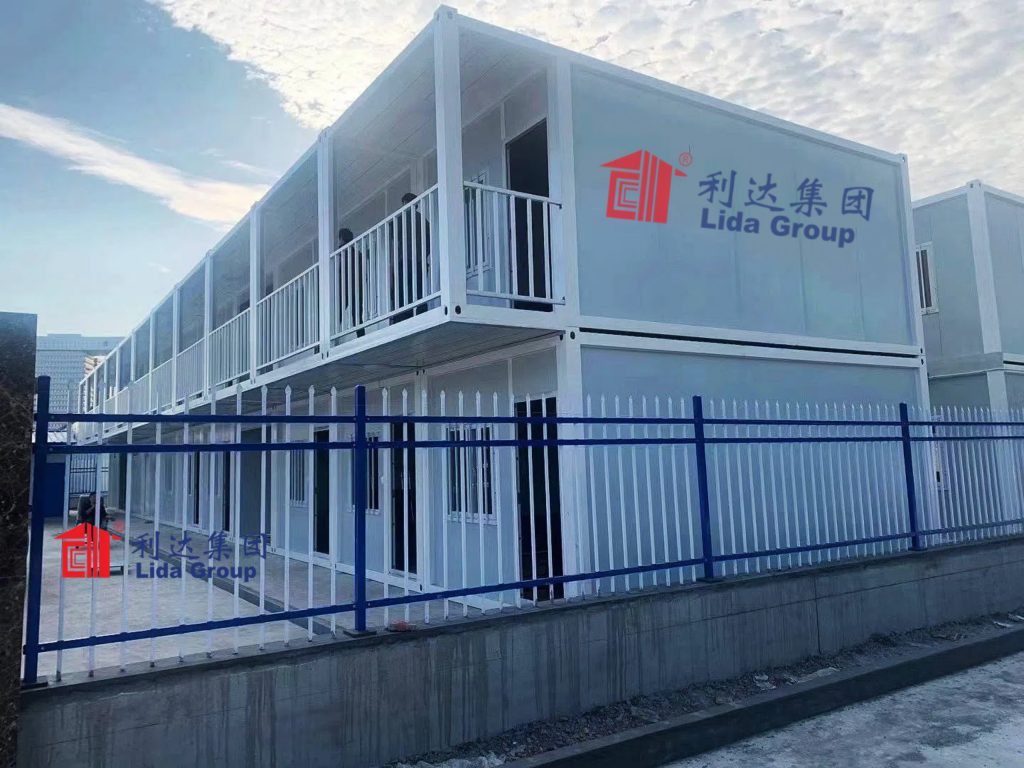
## Affordability and Cost-Effectiveness
Affordability stands as a cornerstone of the Lida Group’s modular prefab housing initiative, addressing one of the most critical barriers to homeownership for countless individuals and families. The streamlined production process inherent in modular construction offers several economic advantages that translate directly into cost savings for buyers. First and foremost, the controlled factory setting allows for efficient use of materials and labor, significantly reducing overhead costs associated with traditional building methods. Precise manufacturing techniques minimize waste and ensure optimal resource allocation, resulting in lower expenditure on raw materials.
Labor costs also see substantial reductions due to the assembly line-like efficiency of modular fabrication. Skilled workers operate in specialized stations, performing repetitive tasks with high precision, which enhances productivity and reduces the time required for each unit’s completion. Furthermore, the faster build times enabled by prefabrication mean shorter project durations, leading to reduced financing charges and earlier occupancy dates for homeowners. This accelerated timeline not only cuts down on interest payments but also allows residents to start enjoying their new homes sooner, translating into tangible financial benefits.
Transportation efficiencies play a pivotal role in maintaining affordability. Since major portions of the homes are manufactured off-site, only final assembly and finishing touches occur at the destination, thereby minimizing logistical complexities and associated expenses. Bulk shipping arrangements can be optimized, taking advantage of economies of scale to further drive down costs. Additionally, the modular design permits easy disassembly and relocation if needed, offering flexibility that could potentially save money in the long run for those facing changing circumstances or opportunities.
Maintenance and operational costs present another area where the Lida Group’s prefab houses excel in terms of affordability. Energy-efficient appliances, well-insulated walls, and advanced HVAC systems contribute to lower utility bills, providing ongoing financial relief for occupants. Moreover, the durable construction materials utilized in these homes reduce the frequency and expense of repairs, ensuring sustained value retention over time.
Overall, the combination of reduced initial investment, minimized operational expenses, and enhanced long-term value makes the Lida Group’s modular prefab houses an attractive option for those seeking affordable yet high-quality living solutions. By breaking down traditional barriers to entry, these innovative dwellings open doors to homeownership for a broader segment of society, fostering inclusivity and stability within communities.
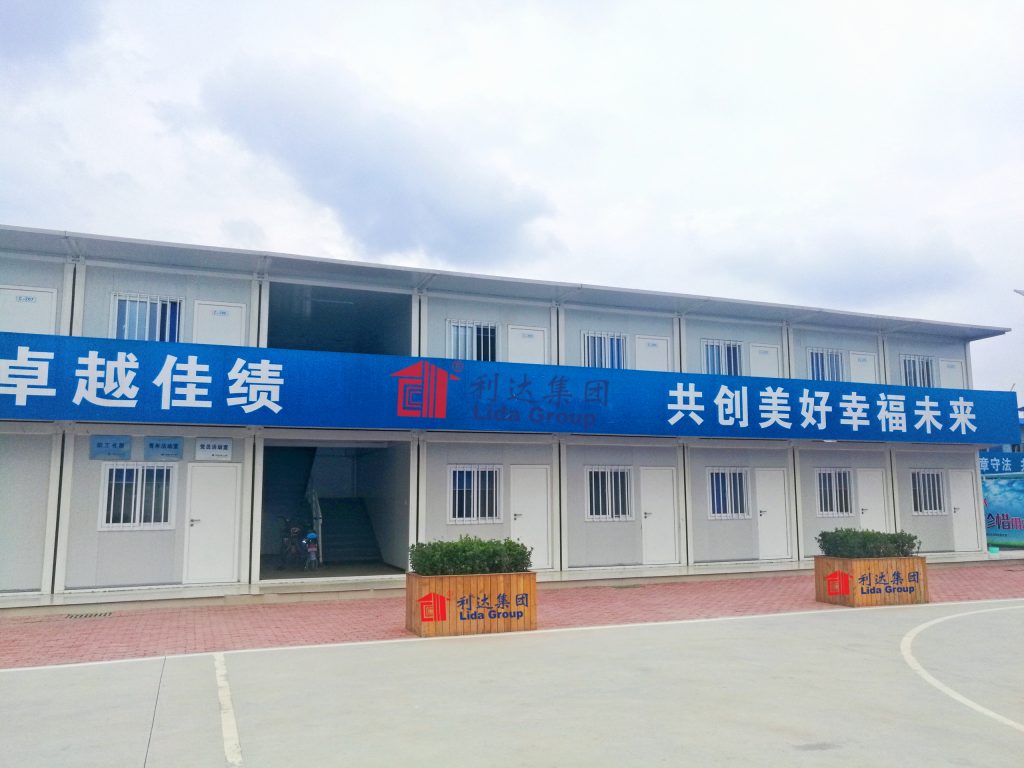
## Success Stories and Case Studies
The Lida Group’s modular prefab houses have garnered widespread acclaim across various regions, serving as testament to their efficacy and versatility. One notable success story comes from a rural community grappling with housing shortages and limited access to skilled labor. By implementing the Lida Group’s modular solutions, this area was able to rapidly construct a series of affordable homes tailored to local needs. The speed and efficiency of the prefab process allowed for timely delivery, addressing urgent accommodation demands while maintaining high standards of quality and comfort. Residents reported significant improvements in living conditions, citing enhanced energy efficiency and reduced maintenance costs as key benefits.
Another compelling case study highlights the application of these modular homes in disaster-prone areas. Following a natural calamity that devastated numerous dwellings, the Lida Group swiftly deployed its prefab housing units to provide temporary shelters for displaced families. The modular design proved invaluable in such scenarios, offering quick installation and adaptability to varying terrains and climates. Feedback from beneficiaries underscored the psychological reassurance provided by secure, comfortable accommodations during times of uncertainty. Furthermore, the durability and resilience of these structures ensured long-term usability even after emergency situations subsided.
Urban redevelopment projects have also benefited immensely from the integration of the Lida Group’s modular prefab houses. In densely populated cities struggling with space constraints and rising real estate prices, these innovative dwellings offer flexible solutions that maximize land utilization without compromising on quality. A prime example includes a mixed-use development featuring modular apartments atop commercial spaces. This vertical integration not only optimized available square footage but also fostered a sense of community among residents and business owners alike. Such initiatives demonstrate the potential for modular construction to address complex urban challenges while promoting sustainable growth.
These success stories collectively illustrate the transformative impact of the Lida Group’s modular prefab houses. Whether responding to immediate crises, alleviating chronic housing deficits, or supporting urban renewal efforts, these structures consistently deliver reliable, cost-effective, and environmentally friendly living solutions. Their adaptability and scalability make them suitable for diverse contexts, reinforcing the Lida Group’s reputation as a pioneering force in the realm of sustainable housing.
## Future Trends and Innovations
As we look toward the horizon, the future of modular prefab housing appears bright, with continuous advancements poised to revolutionize the sector. One of the most promising developments lies in the integration of smart home technologies within modular prefab houses. These innovations aim to enhance convenience, security, and energy efficiency, enabling residents to control lighting, temperature, appliances, and even security systems via smartphone applications or voice commands. Smart thermostats that learn occupant preferences and adjust settings accordingly can lead to substantial energy savings, while automated lighting systems optimize illumination based on natural light availability and room occupancy.
Sustainable building practices remain a focal point for future trends, with an increased emphasis on utilizing recycled and renewable materials. Bamboo, cork, reclaimed wood, and other eco-friendly substances are gaining popularity due to their low environmental impact and unique aesthetic qualities. Additionally, the incorporation of green roofs and living walls not only improves air quality and thermal insulation but also contributes to biodiversity by providing habitats for local flora and fauna. Water conservation strategies will continue to evolve, with more sophisticated greywater recycling systems and rainwater harvesting technologies becoming standard features in modular homes.
Technological advancements in prefabrication processes are expected to further streamline production and enhance customization capabilities. 3D printing technology holds immense potential for creating intricate architectural elements and custom fittings with minimal material waste. Robotic assembly lines may soon become commonplace, automating repetitive tasks and improving precision, thus accelerating construction timelines and reducing labor costs. Augmented reality (AR) tools could enable clients to visualize and modify their homes virtually before fabrication begins, ensuring complete satisfaction with the final product.
The rise of circular economy principles will also influence the trajectory of modular prefab housing. Emphasizing reuse, repair, and recycling, this approach encourages designing products with end-of-life considerations in mind. Modular homes built using easily detachable components facilitate easier upgrades, renovations, and eventual dismantling when necessary. This shift towards a more sustainable lifecycle management system promotes resource efficiency and reduces landfill waste, aligning with global sustainability goals.
In conclusion, the evolution of modular prefab housing promises exciting possibilities for the future. With ongoing innovations in smart technologies, sustainable materials, advanced manufacturing techniques, and circular economy practices, the Lida Group is well-positioned to lead the charge in creating resilient, adaptable, and environmentally conscious living solutions. As these trends converge, they will undoubtedly shape a new era of housing characterized by unprecedented levels of comfort, affordability, and ecological responsibility.
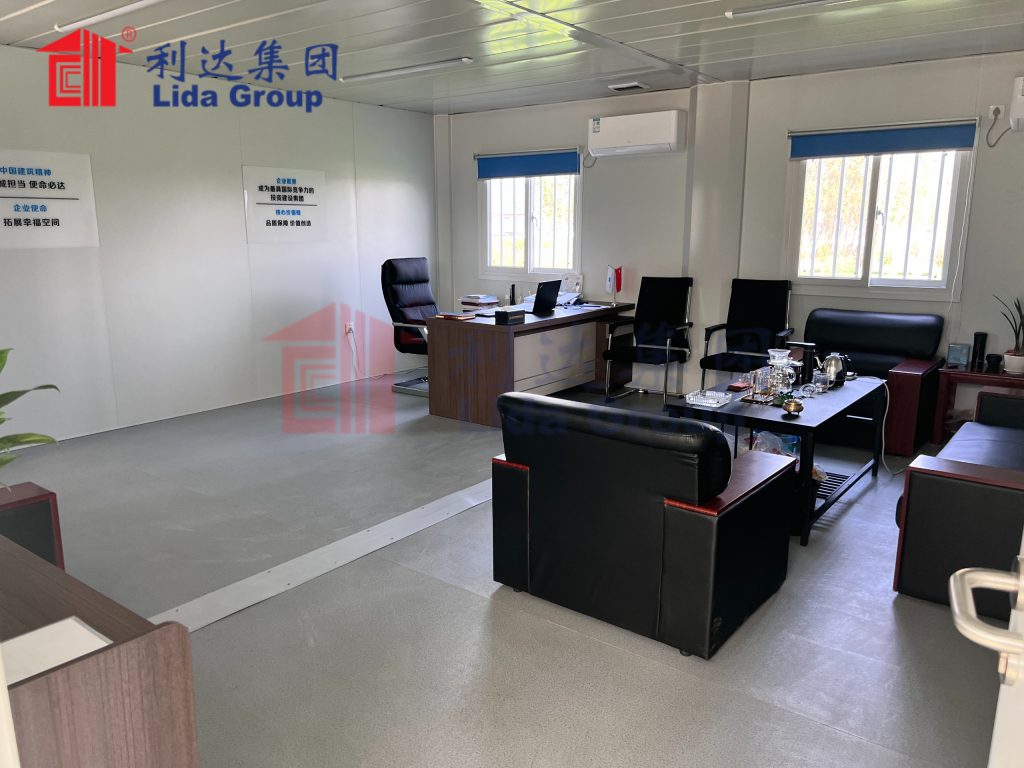
## Conclusion
To sum up, the Lida Group’s innovative modular prefab houses represent a groundbreaking advancement in sustainable and affordable living solutions. By seamlessly integrating cutting-edge technology, eco-friendly materials, and flexible design principles, these structures offer unparalleled quality and comfort while significantly reducing environmental impact. The streamlined production process not only ensures rapid deployment but also minimizes waste and lowers costs, making homeownership accessible to a wider demographic.
Through a series of successful projects and case studies, it is evident that the Lida Group’s modular prefab houses are capable of addressing diverse housing needs—from rural communities to urban redevelopment and disaster recovery scenarios. These achievements underscore the company’s commitment to innovation and social responsibility, paving the way for a more inclusive and sustainable future.
Looking ahead, the continued evolution of smart home technologies, sustainable building practices, and circular economy principles promises to further enhance the appeal and effectiveness of modular prefab housing. As the demand for green and affordable living solutions grows, the Lida Group is uniquely positioned to lead the industry with its visionary approach. By championing these progressive trends, the company not only contributes to environmental preservation but also fosters healthier, happier communities worldwide. Ultimately, the Lida Group’s dedication to excellence and sustainability serves as a beacon of hope, inspiring others to embrace a more conscientious path forward in residential construction.
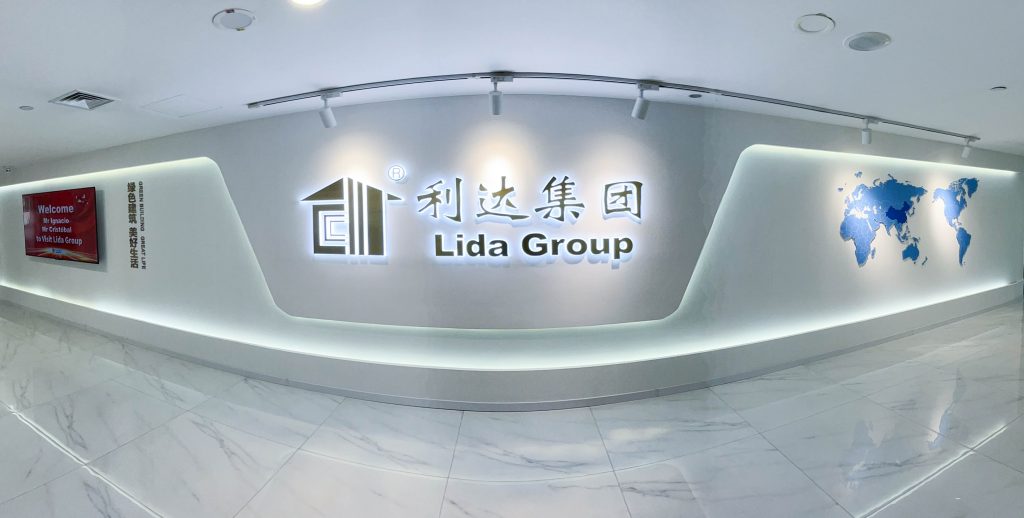
Related news
-
Lida Group Leads the Way in Steel Structural Construction with High-Quality, Durable Housing Innovations
2025-02-11 15:31:26
-
Durable Building Solutions: Lida Group’s High-Quality Steel Houses Built to Last Generations
2025-02-11 14:52:45
-
Lida Group’s Steel Structural Construction Ensures Superior Quality and Durability in Every Project
2025-02-11 13:56:04
contact us
- Tel: +86-532-88966982
- Whatsapp: +86-13793209022
- E-mail: sales@lidajituan.com


